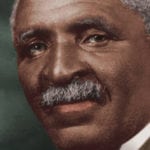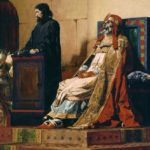 Weird Stuff
Weird Stuff  Weird Stuff
Weird Stuff  Mysteries
Mysteries 10 Tragic Disappearances and Deaths in Joshua Tree National Park
 History
History 10 Ways Childhood Really Sucked in the Old West
 Music
Music 10 Name Origins of Famous Bands from the 1990s
 Religion
Religion 10 Biggest Turnarounds by the Catholic Church
 Weird Stuff
Weird Stuff 10 Unbelievable Times Laws Had Unintended Consequences
 Humans
Humans Ten Historic Women Who Deserve Way More Credit Than They Got
 Movies and TV
Movies and TV 10 Films That Spawned Major Lawsuits
 History
History Ten Times Towns Were Wiped Off the Face of the Earth
 Creepy
Creepy 10 of the Most Disturbingly Haunted Public Houses in the UK
 Weird Stuff
Weird Stuff 10 Niche Subcultures That Are More Popular Than You Might Think
 Mysteries
Mysteries 10 Tragic Disappearances and Deaths in Joshua Tree National Park
 History
History 10 Ways Childhood Really Sucked in the Old West
Who's Behind Listverse?

Jamie Frater
Head Editor
Jamie founded Listverse due to an insatiable desire to share fascinating, obscure, and bizarre facts. He has been a guest speaker on numerous national radio and television stations and is a five time published author.
More About Us Music
Music 10 Name Origins of Famous Bands from the 1990s
 Religion
Religion 10 Biggest Turnarounds by the Catholic Church
 Weird Stuff
Weird Stuff 10 Unbelievable Times Laws Had Unintended Consequences
 Humans
Humans Ten Historic Women Who Deserve Way More Credit Than They Got
 Movies and TV
Movies and TV 10 Films That Spawned Major Lawsuits
 History
History Ten Times Towns Were Wiped Off the Face of the Earth
 Creepy
Creepy 10 of the Most Disturbingly Haunted Public Houses in the UK
10 Historical Figures Who Were Dependent On Opium
Opium has influenced humanity for centuries. Ever since it was first used thousands of years ago, it has fascinated mankind with its powerful and addictive effects. Opium use has a strong grip, and many great people have been tempted by the drug. Some of history’s greats may have even been influenced by it. Here are some influential historical figures who were dependent on opium.
10 Aaron Burr
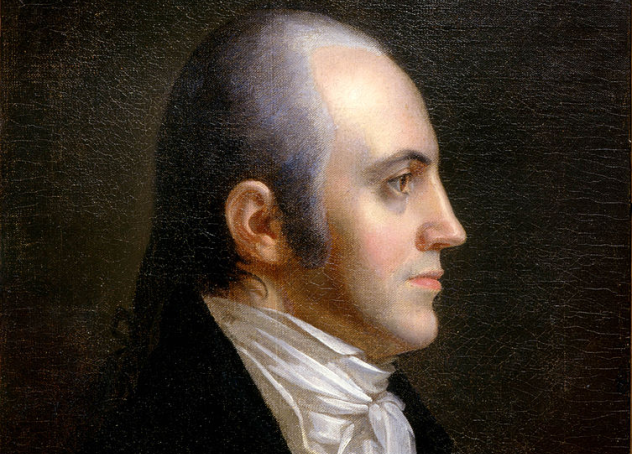
Aaron Burr is one of America’s most famous historical figures. A man of great political standing for most of his life, he had a brilliant career until a matter of honor would forever change his life. He is most remembered today for his famous duel with former Secretary of the Treasury Alexander Hamilton, which ended with Hamilton’s death. While the charges against Burr were dropped, he was forever seen as a marked man in the US.
In 1808, Burr sold his home in New York and went to Britain, where he was more welcome. During his four years there, Burr kept an explicit diary that spoke of his relations with prostitutes, his various illnesses, and what he used to cure them. While he visited his relatives in Britain, he began to increasingly use opium. Fittingly, the Scottish nobility, which welcomed Burr with open arms, was one of the leading profiteers from the opium trade.
Burr’s diary tells of his dependence. One passage speaks of his having a toothache, and he writes, “I thought of my old remedy, camphor and opium.” The very next entry mentions opium again, this time for sleeplessness: “Have had a most uncomfortable night. Swallowed of the opium enough to sicken and stupify me.” The journals go on to speak of opium use for headaches, nausea from using it, and even more opium use for toothaches.
9 Marcus Aurelius
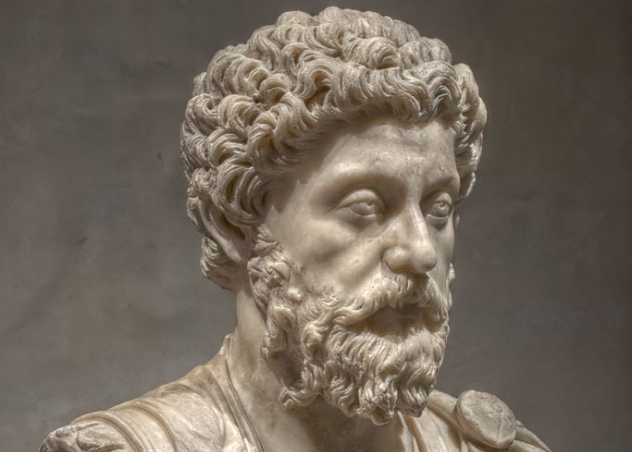
Marcus Aurelius was one of Rome’s great emperors. Today, he is most famous for his book Meditations, which has inspired many of today’s leaders. His stoic philosophy is still one which many people ascribe to. As emperor of Rome, Aurelius attempted to avoid emotional entanglements so he could effectively serve as leader, so it comes as a surprise to many that Aurelius might have been addicted to an exotic drug which, at the time, was available to only the very wealthy—opium.
Marcus Aurelius was never a physically strong man. However, being emperor of Rome, he was expected to lead his army. Because of his frailness, he was often sick from various ailments, and the cold bothered him most. He could barely eat during the daytime and was said to only eat at night, eating very little even then. To combat his sickness, Aurelius’s physician Galen prescribed him a medicine called theriac. It apparently worked, because Aurelius could endure the rigors of war as a result.
Of course, the drug that Aurelius received was opium. According to records by Galen, Aurelius couldn’t take the drug in the daytime because it made him too drowsy, but he took it every night because he couldn’t sleep without it. At the very least, he doesn’t seem to have been hopelessly addicted to opium, since he managed to write Meditations during this time. He most likely only used the drug as a painkiller and sleeping aid.
8 Thomas Jefferson
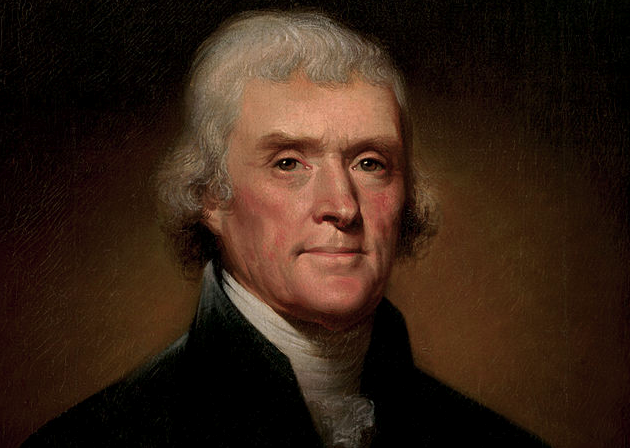
Any good student of US history will recognize Thomas Jefferson. He was one of the founding fathers, he wrote the Declaration of Independence, and he was the third president. His illustrious career certainly made Jefferson one of the greatest figures in history, but, as with many of history’s greats, Jefferson had some interesting personal habits. One of them was that Jefferson was a frequent user of laudanum, a tincture of opium.
Thomas Jefferson was somewhat eccentric, and he often self-medicated. He had an embarrassing diarrhea issue which he wrote about to an acquaintance in a letter in 1803. This acquaintance recommended laudanum to Jefferson to control his problem. It’s not known when Jefferson first agreed to use opium, but we do know that once he began, he used it with enthusiasm. The drug helped Jefferson so much that he would continue to use the drug regularly until his death in 1826. Jefferson refused opium on his deathbed, however, saying to his doctor, “No doctor, nothing more.” He died calm and with a clear mind.
In one of Jefferson’s medicinal journals, he recorded the recipe given to him to make laudanum. So he would always have a supply of the drug, Jefferson grew white opium on his plantation at Monticello. The plants continued to be grown until 1992, when the management became concerned about the legality of doing so.
7 Meriwether Lewis
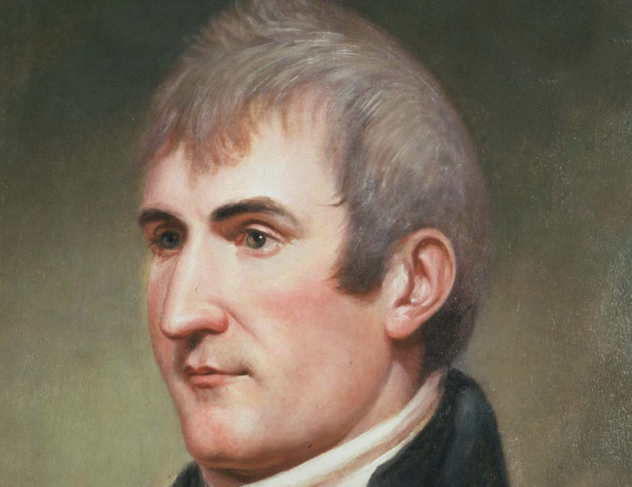
Another of America’s great heroes, Meriwether Lewis was a giant in the history of exploration. After Thomas Jefferson purchased the Louisiana Territory in 1803, which doubled the size of the US, he tasked Meriwether Lewis and William Clark with exploring and mapping the new lands. This was to be an arduous journey that would take Lewis and Clark to the Pacific Northwest. While many see Lewis as a pioneer, some now suggest that he was tormented by opium use.
Lewis was a fan of opium pills, which had only been isolated and produced as a pharmaceutical that year. It seems that Lewis brought a large amount of the drug along, enough for him to take, according to his own estimation, a gram a day. A gram of opium is a shockingly large amount which, combined with Lewis’s alcoholism, must have been extremely potent. He took three pills at night to sleep and two in the morning to operate during the day.
Lewis was known to suffer from depression, so opium and alcohol could have increased his misery. This has been suggested as a possible factor in his death. Lewis died suddenly in 1809 from unknown circumstances ranging from suicide to murder.
6 Samuel Johnson
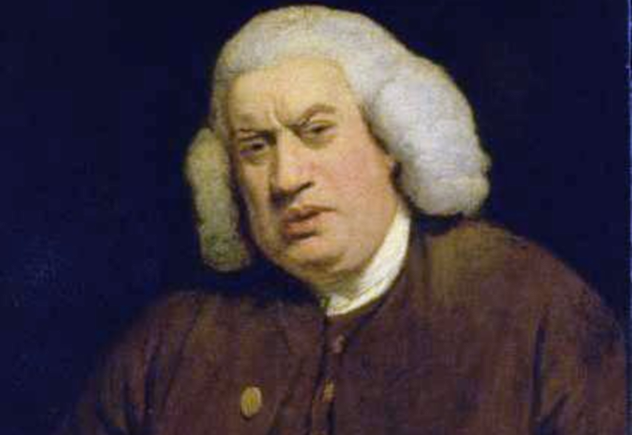
Samuel Johnson is one of the most important men in English history. Johnson effectively established the English language that we have today by writing A Dictionary of the English Language. He was also the subject of what has been described as the most important biography in English history, Life of Samuel Johnson. While most people don’t remember him today, without Johnson’s contribution to the English language, the world would be very different.
Johnson, one of the most learned men of his day, was interested in medicine. At the time, medicine was dangerously unregulated, so Johnson could do as he pleased. He was known to befriend doctors and use himself as a patient. Johnson had a variety of physical ailments and tics, so he would also use other doctors’ suggestions to treat himself.
According to a friend of Johnson’s, he used opium “in great quantities” after 1765, when he would have been in his mid-fifties. Johnson regularly took opium to get “relaxation of the breast,” as he called it. His preferred mixture of the drug was one in which he mixed marshmallow with the poppy. This mixture enabled him to take large amounts, sometimes as much as three grains (about 200 milligrams) by his own account. Johnson understood that opium was highly addictive and frequently said that he “feared” the “horrors of opiates.” In spite of this, he used the drug for almost 30 years until his death in 1784.
5 Benjamin Franklin
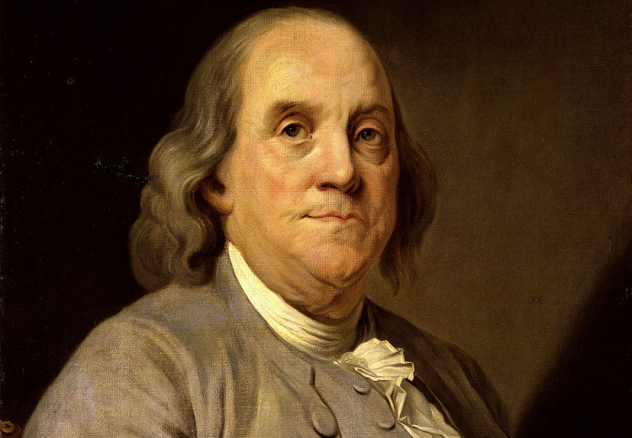
Benjamin Franklin, like Thomas Jefferson, was one of America’s founding fathers. His achievements are too many to count, and he was involved in almost every aspect of American life, from publishing to politics to civil affairs. He was a man of the world who wanted to increase his knowledge with every experience, but like any other person, he began to grow less energized as he aged. In his later years, Franklin would become less and less visible and more addicted to the medication given to him to treat his illnesses.
Franklin indeed suffered many painful illnesses in his old age. He had gout in his feet, a condition which made it hard for him to walk. He also had severe kidney stones, which only worsened his health. To treat this, Franklin’s doctors recommended laudanum in 1782. This seemed to ease his pain and allowed him to function and socialize with his many friends.
Unfortunately, laudanum only worsened his condition in the long run. In 1790, Franklin wrote in a letter that his laudanum use had taken away his appetite and that, “Little remains of me but a skeleton covered in a skin.” He had been working on his memoirs, but laudanum made him so unfocused and tired that he worried that they would never be completed. He died later that year, never having quit the drug.
4 William Wilberforce
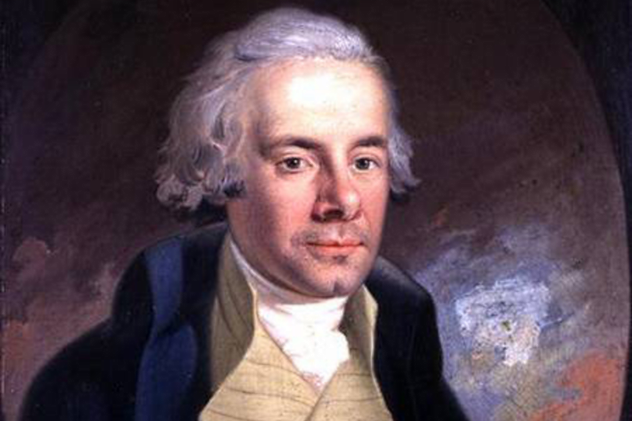
Today, William Wilberforce is one of the dominant figures in British history. Through his efforts, England eventually banned slavery. While this noble act is probably Wilberforce’s most memorable accomplishment, he had a personal life that matched his political reputation. Wilberforce was a man of God who often said that prayers were what got him through the day, but according to his doctors, he had a more pharmaceutical way of coping.
Wilberforce suffered from severe stomach conditions for most of his life. Being one of the leading members of Parliament, Wilberforce couldn’t allow his sickness to impede his work, so he asked his doctors for some kind of solution. He was given opium, which was known to be highly addictive even then. That fact didn’t stop Wilberforce from taking the drug, and Isaac Milner, a friend of his, wrote, “However, be not afraid of the habit of such medicine, the habit of growling guts is infinitely worse.”
Wilberforce would use opium for 45 years until his death. He claimed that the drug didn’t have too much of an effect on his mind, less than that of wine. He recommended the drug to many of his friends in spite of the knowledge that the drug was dangerously addictive.
3 Mary Todd Lincoln
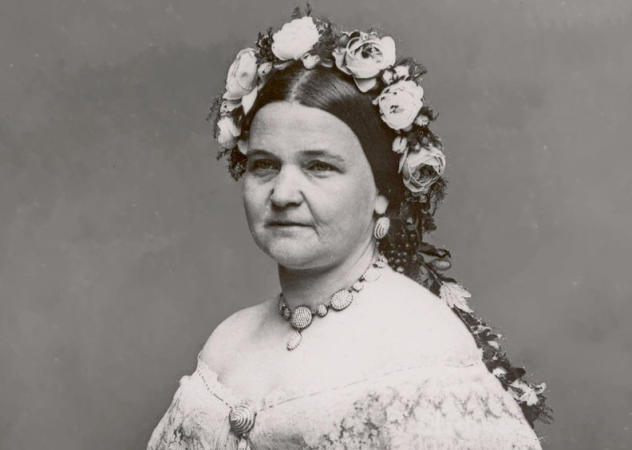
Mary Todd Lincoln was the wife of President Abraham Lincoln, who is widely considered to be one of the greatest presidents in US history. It is certain that being first lady of the United Sates would be a stressful role, but Mary was pushed over the edge. She was first lady during the Civil War, which strained her mind—a mind that was already plagued by depression and anxiety. Like many from her era, Mary used opium to cope.
Mary Todd Lincoln suffered from painful migraines for most of her life. Along with copious amounts of wine, Mary would use paregoric, a type of opium product, to find relief. A maid of hers, Mariah Vance, noted Mary’s heavy usage of paregoric and saw that it made her violent and difficult to deal with. Vance urged Mary to stop her use of the drug, to which Mary said: “If paregoric were poison, the Todd family would be dead years ago. Some never born. We were raised on it.” Mary also used laudanum for her headaches and to help with childbirth, which was difficult for her.
After Abraham Lincoln was assassinated, Mary’s opium use reached new and more dangerous heights. She seemed to swing between sanity and madness and would mix various opium products together. Her family even tried to have her committed, but that still didn’t stop her. She was known to buy a bottle of laudanum, drink it entirely on the street, and then go back for another bottle.
2 Frederic Chopin

Frederic Chopin was one of history’s great composers. Chopin wrote some of the most beautiful music ever heard, and his Nocturnes are played widely by the world’s great musicians. He is universally admired and praised for his genius, but Chopin, like many other artists, suffered from illness and mental distress. His life was one of ups and downs (mostly downs), that eventually took him at a young age. While he lived, though, he took opium, a drug which supposedly helped to curb his symptoms.
To this day, researchers still try to guess what illness Chopin had. He suffered from a wide array of symptoms, both physical and mental, including hallucinations, depression, severe coughs, and migraines. There was very little medical knowledge about such symptoms at the time, so doctors could do no more than treat the symptoms. It is known that Chopin was given opium drops mixed with sugar to help his severe coughing.
Some doctors have suggested that Chopin had temporal lobe epilepsy. This, along with opium use, would only exasperate his depression and hallucinations, in turn fueling his compositions, which have been described as dreamlike and haunting. According to his lover, George Sands (the male pseudonym of female author Armantine Dupin), Chopin once had a terrifying vision that he described to her: “The phantoms called him, embraced him . . . and he pushed away their skeletal faces away from his [face] and fought under their icy hands.”
The extent to which Chopin used opium is unknown, but knowing the nature of the drug, it can be suggested that he used it frequently. We may never know whether Chopin’s opium use, epilepsy, or some other unknown condition caused his hallucinations. Chopin eventually died in 1849 at the age of 39 from his illness, ending a lifetime of suffering.
1 Horatio Nelson
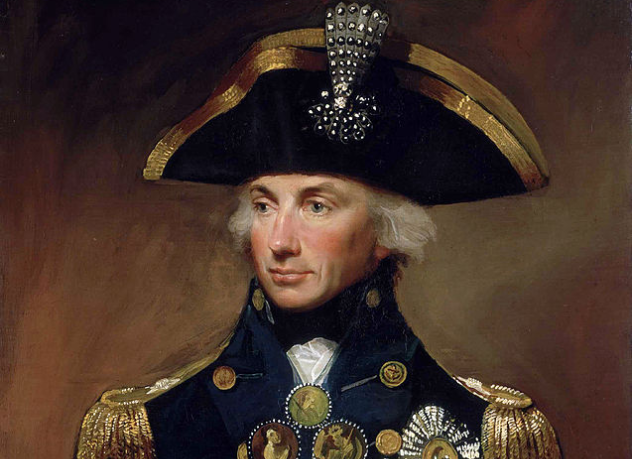
Lord Horatio Nelson is considered to be one of England’s national heroes. Widely celebrated as one of the greatest military minds of all time, Lord Nelson is known for defeating Napoleon’s navy many times during the Napoleonic Wars. He was a brave and daring leader who eventually was wounded and died in the Battle of Trafalgar, a decisive battle which dealt a crushing blow to Napoleon’s armies. However, Lord Nelson was not impervious to illness. In fact, he suffered to such a degree that he took opium just so he could lead his troops.
Nelson was a frail child for much of his early life, but he was determined to join the queen’s navy. Going to the tropical climate of the East Indies almost killed him, so he remained in the European theater for much of his naval career. He was also known to be irritable, moody, and melancholic. Nelson’s injuries from frequent battles left him in pain. He eventually lost his right arm, and he was blinded in one eye. Since he couldn’t sleep at night, Nelson began to take laudanum.
In spite of his nonstop pain, Nelson continued to lead his troops with the aid of a daily dose of laudanum after his wounds were dressed. He could apparently remain conscious through all of this. He was feverish and could hardly move but fought against Napoleon, his bitter enemy. Eventually, through much adversity, Nelson managed to defeat Napoleon at Trafalgar. He died soon afterward in 1805.
Gordon Gora is a struggling author who is desperately trying to make it. He is working on several projects, but until he finishes one, he will write for Listverse for his bread and butter. You can write him at [email protected].
